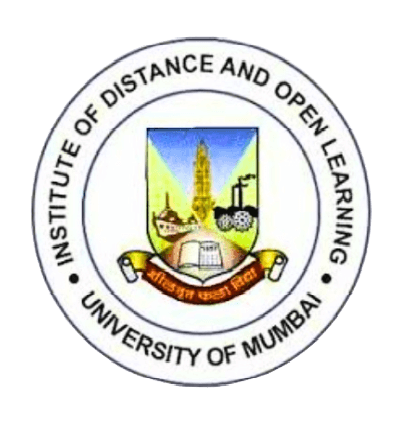F.Y.B.Com Foundation Course MCQ PDF / Foundation Course F.Y.B.com Foundation Course
F.Y.B.Com Foundation Course 1. The transfer of control of ownership from the public sector to the private sector is called as __________. a. Liberalisation b. Privatisation c. Globalisation d. Industrialisation ANS: B 2. The term __________ refers to the integration of the economy of the nation with the world economy; it is a multifaceted aspect. a. Liberalisation b. Privatisation c. Globalisation d. Disinvestment ANS: C 3. The New Economic Policy was announced on 24th July 1991 by the then Finance Minister of India ________________. a. P. Chidambaram b. Manmohan Singh c. Arun Jaitley d. Pranab Mukherjee ANS: B 4. The main reason behind MNCs investments is ______________. a. to provide employment b. to provide financial support to the country’s government c. for the welfare of underprivileged people d. to increase the assets and earn profits ANS: D 5. _______________ is the Largest IT company in India in terms of Revenue. a. Tata Consultancy Service b. Infosys c. Wipro d. HCL Technologies ANS: A 6. ______________ is NOT an advantage of ICT sector growth in India. a. Better communication b. Cost effectiveness c. 24 x 7 operations d. Cyber crime ANS: D 7. ________ is a set of satellite and control system that determine its location anywhere on the Earth, 24 hours a day. a. GIS b. WWW c. GPS d. Gmail ANS: C 8. The internet has made the whole world a _______________. a. Global Company b. International Company c. International Company d. Global Village ANS: D 9. Human ___________ involves the movement of people from one place to another with intentions of settling, permanently or temporarily, at a new location (geographic region). a. Development b. Psychology c. Migration d. Rights ANS: C 10. When people migrate due to drought, flood, war, famine and other adverse conditions it is known as _______________. a. Forced migration b. Impelled migration c. Long-term migration d. Short-term migration ANS: A 11. After 1991, the employment in the public sector has ____________. a. Increased b. Decreased c. Not changed d. Become zero ANS: B 12. ___________ is NOT an impact of migration on Countries of origin. a. Improvement in the lifestyle b. Increasing consumerism c. Brain gain d. Decrease in population pressure ANS: C 13. The majority of Indian population is engaged in the ______________ sector. a. Agriculture b. Industry c. Service d. Healthcare ANS: A 14. The ____________ revolution was responsible for substantial increase in food grain production in India. a. White b. Blue c. Green d. Yellow ANS: C 15. ____________ is NOT true as per the WTO’s Agreement on Agriculture. a. Tariff reduction b. Increase in market access c. Reduction in export subsidies d. Increase in domestic subsidies ANS: D 16. ____________ is NOT a cause of farmers’ suicide in Maharashtra. a. Crop failure b. Increasing cost of production c. Debt trap d. Remunerative prices of crops ANS: D 17. Human Rights have ___________ application. a. Social b. Universal c. Economical d. Political ANS: B 18. The General Assembly adopted the UDHR on ___________, at Paris. a. 10th December, 1948 b. 12th December, 1948 c. 10th December, 1950 d. 12th December, 1950 ANS: A 19. The Right to Freedom is enumerated in the Article __________ of Indian Constitution. a. 17 b. 18 c. 19 d. 16 ANS: C 20. Human Rights are derived from the principle of ___________ law. a. Government b. Natural c. Judicial d. Human ANS: B 21. According to _______________, “Human rights are those conditions of social life without which no man can seek in general to be himself at his best.” a. United Nations b. Dr. Babasaheb Ambedkar c. Prof. Harold Laski d. Cultural dictionary ANS: C 22. The Constitution of India provides ____________ fundamental rights to citizens. a. Five b. Six c. Seven d. Eight ANS: B 23. The __________________ guaranteed civil and legal rights to the English barons in 1215. a. Magna Carta b. Petition of Rights c. Social Contract d. General Will ANS: A 24. The objective or Right to Freedom of Religion is to sustain the principle of ____________ in India. a. Communalism b. Regionalism c. Secularism d. Casteism ANS: C 25. The ____________ of the Constitution of India provides for equality before the law or equal protection of the laws within the territory of India. a. Article 14 b. Article 16 c. Article 18 d. Article 23 ANS: A If You Need Most Importance MCQ PDF ECONOMICS Question Bank Than Pay Rs 100 Only Contact 8652719712 / 8779537141 Join Telegram Group Mumbai Univeersity :- https://t.me/mumbaiuniversityidol Suraj Patel Education :- https://t.me/surajpateleducation F.Y.J.C EXAM :- https://t.me/FYJCexam S.Y.J.C EXAM :- https://t.me/SYJCexam F.Y EXAM :- https://t.me/fyexam S.Y EXAM :- https://t.me/syexam T.Y EXAM :- https://t.me/tyexam M.Com Part 1 EXAM :- https://t.me/McomPart1Exam M.Com Part 2 EXAM :- https://t.me/McomPart2Exam M.A EXAM :- https://t.me/mastudentsexam YouTube Channel https://www.youtube.com/channel/UCNxVWIrZ1JYB4y-bWXfaBAw F.Y.B.COM Other Subject MCQ FINANCIAL MANAGMENT F.Y.B.COM MCQ PDF https://www.surajpateleducation.com/2020/12/financial-managment-fybcom-mcq-pdf.html BUSINESS COMMUNICATION F.Y.B.COM MCQ PDF https://www.surajpateleducation.com/2020/12/business-communication-fybcom-mcq-pdf.html F.Y.B.COM Mathematical and Statistical Techniques MCQ PDF https://www.mumbaiuniversityidol.com/2021/04/fybcom-mathematical-mcq-pdf.html F.Y.B.Com Commerce MCQ PDF https://www.surajpateleducation.com/2021/01/fybcom-commerce-mcq-pdf.html F.Y.B.COM BUSINESS ECONOMICS https://www.mumbaiuniversityidol.com/2021/04/fybcom-mcq-for-business-economics.html F.Y.B.COM EVS https://www.mumbaiuniversityidol.com/2021/04/fybcom-environmental-studies-mcq-pdf.html


